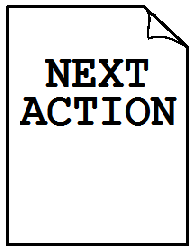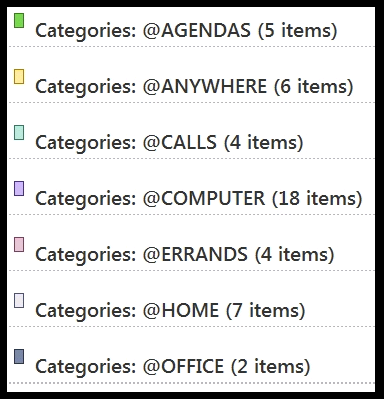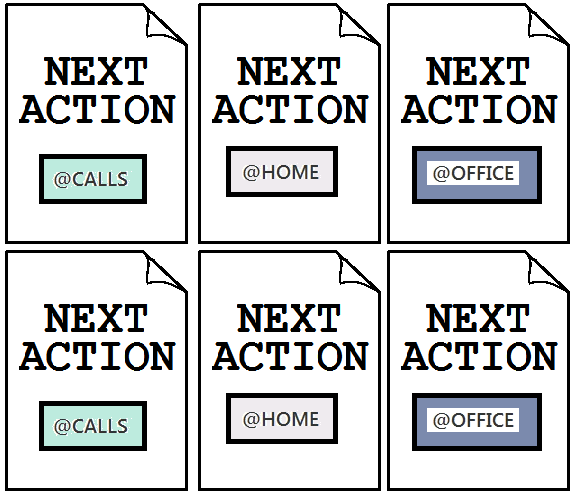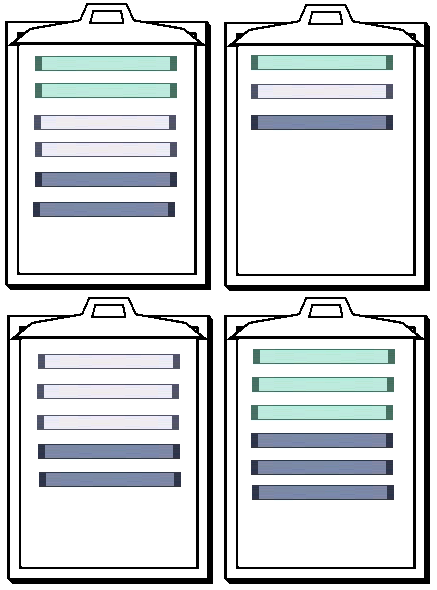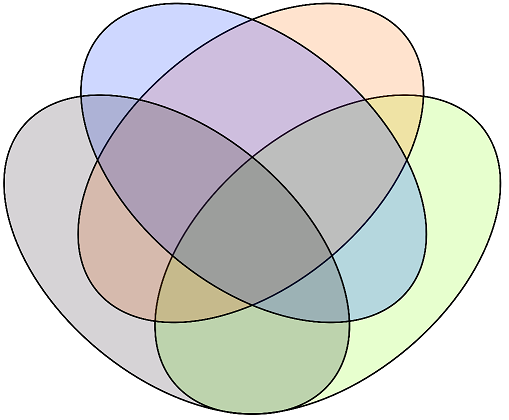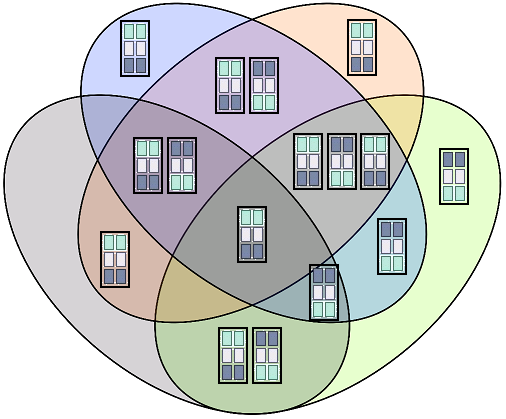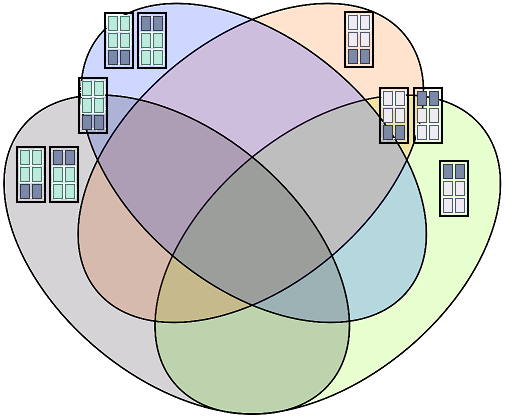Now we're going to change our perspective a little bit and consider that we have some Areas of Focus:
I've depicted them here as overlapping, because a Project can fall under more that one Area of Focus:
I'll go even further -- I'll suggest that
good projects are good precisely because they fall under more than one Area of Focus. If you can get out and play some sports with your kids, and hit Health and Family and Fun all at the same time, then that's going to be a good use of your time.
But let us consider another scenario, which is not really so rare:
Here we have two pairs of Areas of Focus -- the left side and the right side -- which do not relate to each other. Furthermore, there's a shared context between all of the projects, but also contexts which are unique to each family of AoF.
This is the sort of scenario where I think two (or more) mostly-independent systems makes sense. There's not really much to be gained by cramming everything into one system, and not really much lost by dividing things into two systems.
As an extreme example of the sort of person who might face this sort of situation, consider, say, an undercover narcotics agent. Probably wants to keep a good level of isolation between certain parts of his life.
I've called these big blobs Areas of Focus, but I think this way of looking at things can operate on the higher horizons as well. Projects also make sense in the context of annual goals and longer-term vision.
When DA talks about "work-life balance" being bogus, I think this is the sort of thing he's talking about, but that's a little more off-topic than even I want to get right now.
I'll also mention that this sort of division tends to stress people out, and the stress increases when the division continues into the higher horizons. The very worst schism possible, at the 50,000-ft Life Purpose level, can and does destroy people.
So... that may not be quite as useful to you specifically as I first anticipated, but it was still kind of fun to write.
Cheers,
Roger

